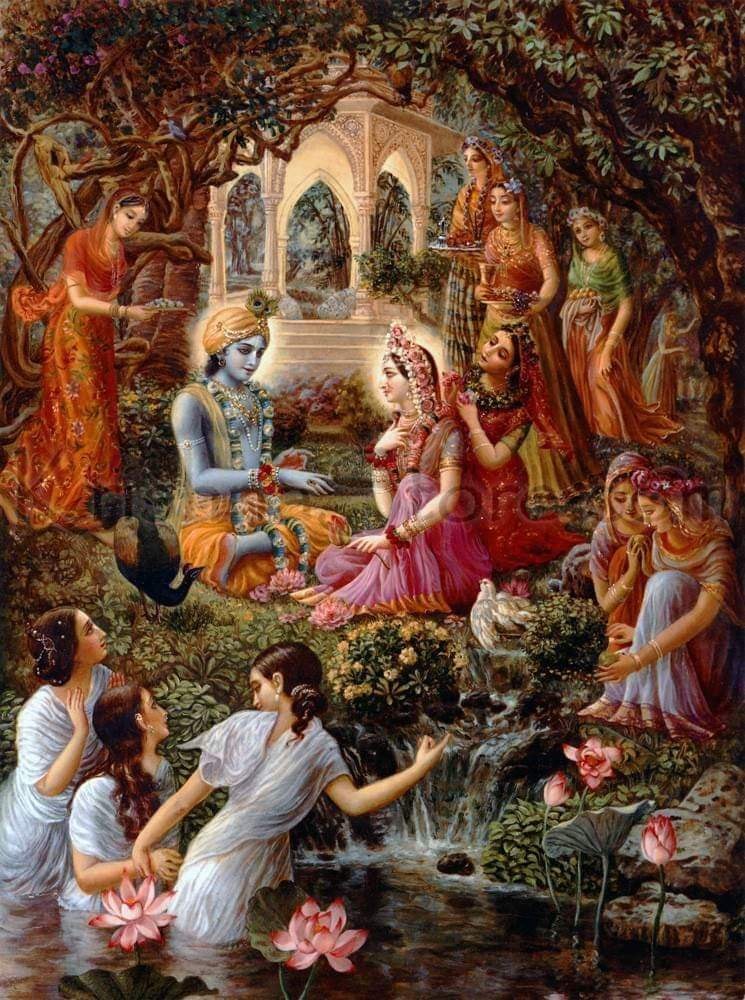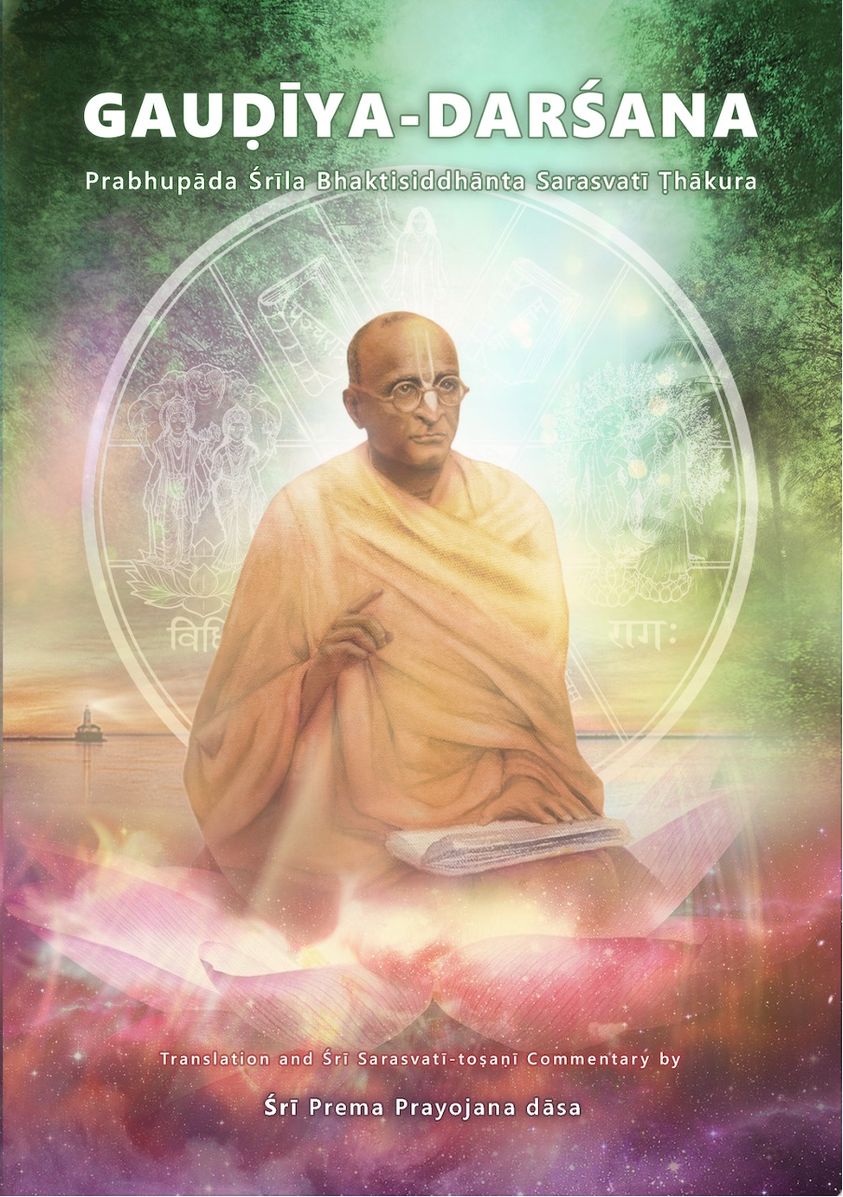Covered by lust
From Srila Bhaktivedanta Narayana Maharajas Bhagavad Gita Chapter Three Text 39
avritam jnanam etena / jnanino nitya-vairina
kama-rupena kaunteya / dushpurenanalena ca
O Kaunteya, the true knowledge of the wise is covered by the eternal enemy in the form of kama, which burns like fire and can never be satiated.
Srila-Visvanatha-Cakravarti-Thakura![Srila-Visvanatha-Cakravarti-Thakura[1]](../wp-content/uploads/2012/04/Srila-Visvanatha-Cakravarti-Thakura1-150x150.jpg)
SARARTHA-VARShINI ( INNER MEANING ) BY SRILA VISVANATHA CAKRAVARTI THAKURA
Kama is indeed ignorance for all jivas, as Sri Bhagavan is explaining in this sloka beginning with avritam. This desire to enjoy the sense objects has been described as the eternal enemy; therefore, it must be destroyed by all means. Kama-rupa means in the form of kama. It is indeed ignorance which envelops the real nature of the jiva. Here the word ca has been used to mean "like". Just as fire cannot be satiated by pouring ghee into it, similarly, kama cannot be fulfilled by enjoying the sense objects. It is said in Srimad-Bhagavatam (9.19.14): na jatu kamah kamanam / upabhogena samyati havisha krishna-vartmeva / bhuya evabhivardhate Fire is not satiated by ghee, rather it increases. Similarly by enjoying sense objects, the thirst for sense enjoyment increases more and more. It does not become pacified.
Srila Bhaktivedanta Narayana Maharaja![gurudeva-button3[1]](../wp-content/uploads/2012/04/gurudeva-button31-150x150.jpg)
SARARTHA-VARSHINI PRAKASIKA-VRITTI ( INNER MEANING ) BY SRILA BHAKTIVEDANTA NARAYANA MAHARAJA
Kama is the root cause of lamentation and distress, andhas been compared to fire.kamanalam madhu-lavaih samayan durapaih Srimad-Bhagavatam 7.9.25 Kama can never be satisfied by enjoying the sense objects. It is like a fire which cannot be extinguished by drops of honey in the form of momentary satisfaction. evam griheshv abhirato / vishayan vividhaih sukhaih sevamano na catushyad / ajya-stokair ivanalah Srimad-Bhagavatam 9.6.48 The sage Saubhari Muni was not able to attain peace by profusely enjoying sense objects, just as fire is not pacified when drops of ghee are poured into it. sevato varsha-pugan me / urvasya adharasavam na tripyaty atma-bhuh kamo / vahnir ahutibhir yatha Srimad-Bhagavatam 11.26.14 Even after I had served the so-called nectar of the lips of Urvasi for many years, my lusty desires kept rising again and again within my heart and were never satisfied, just like a fire that can never be extinguished by the oblations of ghee poured into its flames. Srila Bhaktivinoda Thakura quotes Krishna as saying, This kama is indeed avidya for the jivas and it is their only eternal enemy. It covers the conscious jivas like an irresistable fire. Just as I, Sri Bhagavan, am a conscious being, similarly the jiva is also a conscious entity. The difference between My nature and that of the jiva is that I am infinitely conscious and omnipotent, whereas the jiva is atomically conscious and can only act by the energy given by Me. The nitya-dharma, eternal occupation, of the jiva is to be My eternal servant. This is called prema or nishkama-jaiva-dharma, the eternal function of the jiva whose motivation is unalloyed. Every conscious being is, by his constitutional nature, endowed with free will, thus he is My eternal servant by his own free will. According to the degree to which he properly uses this free will, he can act as My eternal servant. The misuse of that pure free will is called avidya or kama. Those jivas who do not serve Me by correctly using their free will have to accept kama, an enjoying mood, which is the perverted form of the jivas pure state, prema. Their svarupa becomes acchadita-cetana (covered consciousness) as they are covered more and more by kama. This is called karma-bandhana, the bondage of the jiva, or samsara-yatana, the sufferings of birth and death.









